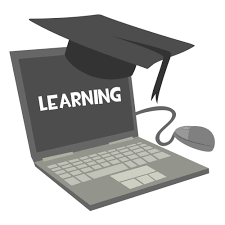
Thank you for all your recent entries to our Irish language competition. We had a great response to this challenge and the lucky winner was notified by email at the end of last month! Philippa Baker (London) is the happy recipient of a €250 gift voucher. Philippa is completing our home study Irish leaving certificate course at the moment and is working towards sitting the leaving certificate in 2019 as an external candidate.
We asked Professor Scott Oser to provide a translation for us to publish so that all of our Irish students can see how it is done – Canadian style!
Interview with Professor Scott Oser
-
When did you found An Ciorcal Comhrá?
Ciorcal Comhrá was set up in 2009 and has operated continuously ever since.
Bunaíodh an Ciorcal Comhrá i 2009, agus tá sé ar siúl gan bhriseadh ó shin i leith.
2. What inspired you to set up this Irish language exchange?
I had not had any opportunities to use my Irish for nearly a decade at the point when I learned that my former Irish teacher had died tragically young from brain cancer. This shocking news have the effect of lighting a fire under me and motivating me to look for other Irish speakers in the Vancouver area. While there was a beginner’s Irish class offered across town, there was nothing available for people who were already fluent and just wanted a chance to use Irish outside a classroom setting. But through that class I was able to find other more advanced Irish speakers and start a group. Members have joined steadily since.
Is beag seans a bhí agam Gaeilge a labhairt le deich mbliana anuas, ansin fuair mé an scéal gur bhásaigh an múinteoir Gaeilge a bhíodh agam go tobann le hailse na inchinne. Spreag an scéala uafásach seo mé chun cainteoirí eile Gaeilge a lorg i Vancouver agus máguaird. Cé go raibh bunrang Gaeilge á thairiscint ar an taobh eile den chathair, ní raibh faic ann do dhaoine a bhí líofa cheana ar mhian leo deis chun Gaeilge a úsáid taobh amuigh den tseomra ranga. Ach bhí mé in ann aithne a chur ar ardchainteoirí eile Gaeilge tríd an rang sin, agus grúpa a bhunú. Tá daoine ag glacadh ballraíochta go seasta ó shin i leith.
-
Can you tell us a little bit about the group of people involved in the group and their backgrounds? Are they native Canadians, ex pats or a mix of both?
The majority of our regulars are Irish ex-pats, some of whom have been in Canada for decades as well as some people who’ve come more recently. We do however have two or three Canadians, and the occasional American.
Is Éireannaigh mórchuid ár ngnáthbhall, cuid acu ina gcónaí i gCeanada le fiche nó tríocha bliain anuas, mar aon le daoine a tháinig anall níos déanaí. Tá beirt nó triúr Ceanadach inár measc freisin, áfach, agus an corr-Mheiriceánach.
-
How did you go about learning Irish initially? What was your motivation?
I began learning Irish in 1993 while living in the US. Originally I had only textbooks and audio tapes available, and the Internet as we know it today scarcely existed. Upon moving to Chicago, I found a group that offered weekly evening classes which I attended for about five years, and was eventually able to reach a high level of fluency.
The question of why I would learn Irish is one I am often asked and one which I scarcely have a convincing answer for. Ultimately I loved the language, and wanted to learn the idiom that some of my ancestors previously spoke. The fact that Irish was both unusual but very much a living language was part of the appeal.
Thosnaigh mé ar fhoghlaim na Gaeilge i 1993, agus mé i mo chónaí i Meiriceá. Ar dtús ní raibh agam ach téacsleabhair agus caiséid fuaime, mar ba ar éigean a bhí an tIdirlíon ann mar atá inniu. Tar éis dom bogadh go Siceagó, fuair mé grúpa a mhúin ranganna seachtainiúla sna hoícheanta. D’fhreastail mé ar na ranganna sin le cúig bliana, agus bhain mé ardchaighdéan líofachta amach sa deireadh.
Is minic a chuirtear an cheist orm cad ina thaobh go bhfoghlaimeoinn Gaeilge, agus ní dóigh liom go bhfuil freagra sásúil uirthi fós. Sa deireadh grá don teanga féin a bhí ann, agus fonn chun teanga mo shinsear a fhoghlaim. Ba mhealltach freisin go bhfuil Gaeilge neamhghnách ach beo.
-
What tips can you give our students who might like to set up a similar language exchange?
Advertise extensively online, and set up a culture in which only Irish is spoken. We welcome beginners but tell them that we’re there to speak Irish, and won’t be offering translations to English or speaking English. We’re not a class, and while we love talking about the language as much as any Irish speaker we’re there to speak it and not talk about speaking it.
Déan neart fógraíochta ar líne, agus socraigh an nós gur Gaeilge amháin a bheidh á labhairt agaibh. Cuirimid fáilte roimh thosnaitheoiri, ach deirimid leo go dtagaimid le chéile chun Gaeilge a labhairt, agus ní chuirfear aistriúcháin go Béarla ar fáil. Ní rang é an Ciorcal Comhrá, agus cé gur breá linn caint faoin teanga, táimid ann chun í a labhairt seachas bheith ag caint fúithi i mBéarla.
-
Do you have any advice for a student who may be struggling with getting to grips with the language?
While this will not be a popular opinion, I think getting a strong grip on the grammar at the start is essential. Get yourself a good grammar book and really learn how phrases and sentences get put together. I don’t think this can be learned just by osmosis. Once you have that basis, read extensively to improve vocabulary.
Ní thaithneoidh an tuairim seo le cách, ach is dóigh liom go gcaithfidh tú dul i ngleic leis an ngramadach ón tosach. Faigh graiméar maith agus foghlaimigh ó thús go deireadh conas frásaí agus abairtí iomlána a chur le chéile. Ní dóigh liom gur féidir é sin a fhoghlaim i ngan fhios duit. Agus an bunús sin agat, bí ag síorléamh chun do stór focal a mhéadú.
-
You have been a guest on An Saol Ó Dheas on Raidio na Gaeltachta and spoken about your love of the Irish language before. What did you talk about?
My interview on An Saol Ó Dheas was motivated by a trip I took to Dublin in November 2016, where I presented a public lecture in Irish on physics, which is my day job. I was invited to speak at the Meanmanra 2016 conference on dark matter. It was perhaps the first time a foreign scientist has lectured in Irish in Ireland, and almost certainly the first time that cutting-edge physics and cosmology was presented through Irish as well. The interview on Raidió na Gaeltachta may be found here:
Cuireadh faoi agallamh ar An Saol Ó Dheas mé i Samhna 2016, agus mé ar tí léacht phoiblí i nGaeilge a thabhairt i mBaile Átha Cliath ar an bhfisic, arb é mo ghairm é. Tugadh cuireadh dom caint ag an gcomhdháil Meanmanra 2016 ar cheist an damhna dhorcha. B’fhéidir gurbh é sin an chéad uair gur thug eolaí ó thar lear léacht i nGaeilge in Éirinn, agus is dócha nár cuireadh an fhisic cheannródaíoch agus an chosmeolaíocht faoi bhráid an phobail i nGaeilge roimhe sin ach oiread. Tá m’agallamh ar Raidió na Gaeltachta le fáil anseo:
And my dark matter lecture is on youtube:
Agus tá mo léacht ar dhamhna dorcha ar youtube:
8. Have you ever visited Ireland? If yes, what do you like best about coming to our country?
I’ve been to Ireland three times, but I’ve spent less than a month in the country in total. For me the best part is the comparative ease of finding people to speak Irish with. And I always buy lots of books—you can buy Irish books online from Canada, but shipping adds ~30% to the cost. The last time I came I brought a small extra suitcase and filled it entirely with books from Siopa an Chonartha in Dublin!
Chuaigh mé go hÉirinn trí uair, ach tá níos lú ná mí caite sa tír in iomlán. An ghné is fearr, dar liom, ná bheith in ann teacht ar dhaoine le Gaeilge go fuirist. Agus ceannaím i gcónaí moll mór leabhar—is féidir leabhair Ghaeilge a cheannach ar líne ó Cheanada, ach cuireann an post ~30% leis an gcostas. An uair dheireanach a tháinig mé go hÉirinn thug mé cás beag sa bhreis liom agus líon go béal é le leabhair ó Shiopa an Chonartha i mBaile Átha Cliath!
Distance Learning Leaving Certificate Courses

We deliver 14 subjects at both Higher and Ordinary level by home study to any location worldwide. Our students enrol in our home study leaving certificate programme and have many different personal motivations for doing so. They:
- Use the course as a form of extra tuition or grind for the leaving certificate State Examination
- Take an extra leaving certificate subject that is not available in their school due to a timetable clash
- Are being home schooled for the leaving certificate
- Are mature learners looking to satisfy an academic pre-entry requirement for a third level course
- Are living abroad and want to stay in the Irish educational system
- Want to come to the EU to study at third level and use the Irish leaving certificate qualification to gain access to degree courses e.g business, law and medicine
- Are parents or guardians of a senior cycle student and wish to assist at home in a particular leaving certificate subject
Whatever your motivation we have a leaving certificate course for you! Take the first step and enrol today!